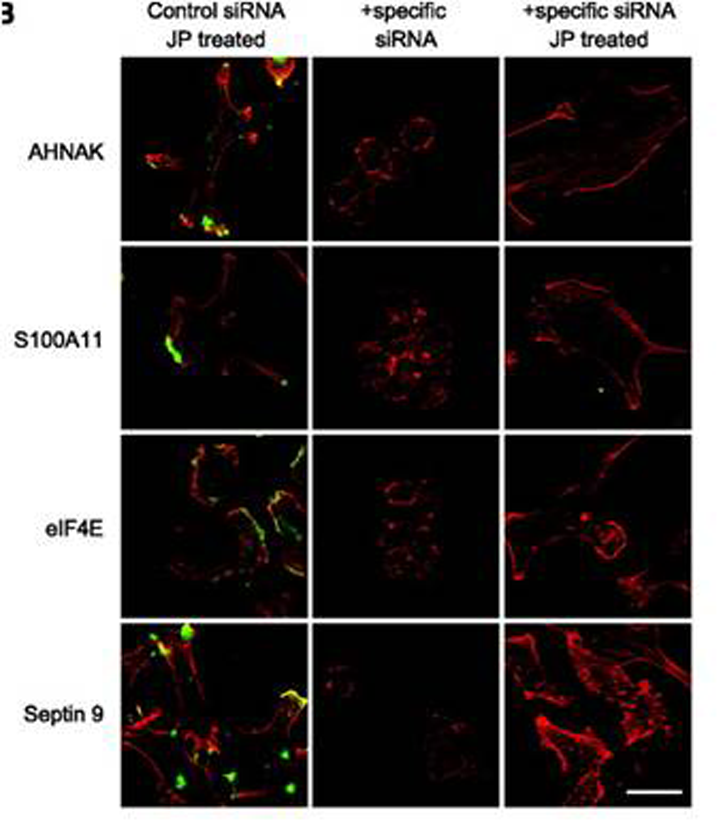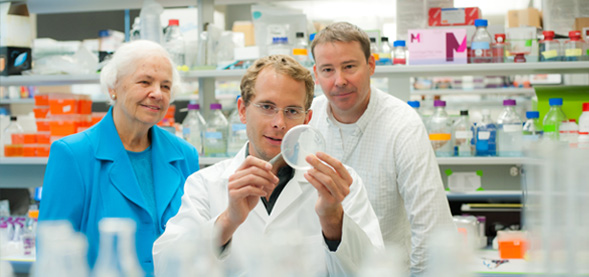 Pseudopodial actin dynamics control epithelial-mesenchymal transition in metastatic cancer cells.
Pseudopodial actin dynamics control epithelial-mesenchymal transition in metastatic cancer cells.
Authors: Jay Shankar, Anat Messenberg, Jackie Chan, T.M. Underhill, L.J. Foster, and I.R. Nabi. Lab of Ivan R. Nabi, Cell & Developmental Biology (CELL) Research Group, Department of Cellular & Physiological Sciences.
Published in Cancer Res May 1, 2010 70; 3780 doi: 10.1158/0008-5472.CAN-09-4439
Abstract: A key cellular process associated with the invasive or metastatic program in many cancers is the transformation of epithelial cells toward a mesenchymal state, a process called epithelial to mesenchymal transition or EMT. Actin-dependent protrusion of cell pseudopodia is a critical element of mesenchymal cell migration and therefore of cancer metastasis. However, whether EMT occurs in human cancers and, in particular, whether it is a prerequisite for tumor cell invasion and metastasis, remains a subject of debate. Microarray and proteomic analysis of actin-rich pseudopodia from six metastatic human tumor cell lines identified 384 mRNAs and 64 proteins common to the pseudopodia of six metastatic human tumor cell lines of various cancer origins leading to the characterization of 19 common pseudopod-specific proteins. Four of these (AHNAK, septin-9, eIF4E, and S100A11) are shown to be essential for pseudopod protrusion and tumor cell migration and invasion. Knockdown of each of these proteins in metastatic cells resulted in reduced actin cytoskeleton dynamics and induction of mesenchymal-epithelial transition (MET) that could be prevented by the stabilization of the actin cytoskeleton. Actin-dependent pseudopodial protrusion and tumor cell migration are therefore determinants of EMT. Protein regulators of pseudopodial actin dynamics may represent unique molecular targets to induce MET and thereby inhibit the metastatic potential of tumor cells. Cancer Res; 70(9); OF1–11.




